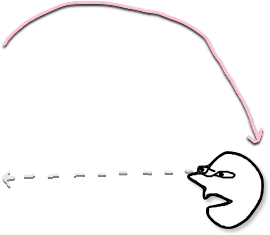53
you are viewing a single comment's thread
view the rest of the comments
view the rest of the comments
this post was submitted on 03 Aug 2025
53 points (98.2% liked)
askchapo
23075 readers
126 users here now
Ask Hexbear is the place to ask and answer ~~thought-provoking~~ questions.
Rules:
-
Posts must ask a question.
-
If the question asked is serious, answer seriously.
-
Questions where you want to learn more about socialism are allowed, but questions in bad faith are not.
-
Try [email protected] if you're having questions about regarding moderation, site policy, the site itself, development, volunteering or the mod team.
founded 5 years ago
MODERATORS
 with the message and buying endangered fish.
with the message and buying endangered fish.
The para on commodity fetishism really clarified this concept for me
para on commodity fetishism really clarified this concept for me
spoiler
One day there was an anonymous present sitting on my doorstep—Volume One of Capital by Karl Marx, in a brown paper bag. A joke? Serious? And who had sent it? I never found out. Late that night, naked in bed, I leafed through it. The beginning was impenetrable, I couldn't understand it, but when I came to the part about the lives of the workers—the coal miners, the child laborers—I could feel myself suddenly breathing more slowly. How angry he was. Page after page. Then I turned back to an earlier section, and I came to a phrase that I'd heard before, a strange, upsetting, sort of ugly phrase: this was the section on "commodity fetishism," "the fetishism of commodities." I wanted to understand that weird-sounding phrase, but I could tell that, to understand it, your whole life would probably have to change.His explanation was very elusive. He used the example that people say, "Twenty yards of linen are worth two pounds." People say that about every thing that it has a certain value. This is worth that. This coat, this sweater, this cup of coffee: each thing worth some quantity of money, or some number of other things—one coat, worth three sweaters, or so much money—as if that coat, suddenly appearing on the earth, contained somewhere inside itself an amount of value, like an inner soul, as if the coat were a fetish, a physical object that contains a living spirit. But what really determines the value of a coat? The coat's price comes from its history, the history of all the people involved in making it and selling it and all the particular relationships they had. And if we buy the coat, we, too, form relationships with all those people, and yet we hide those relationships from our own awareness by pretending we live in a world where coats have no history but just fall down from heaven with prices marked inside. "I like this coat," we say, "It's not expensive," as if that were a fact about the coat and not the end of a story about all the people who made it and sold it, "I like the pictures in this magazine."
A naked woman leans over a fence. A man buys a magazine and stares at her picture. The destinies of these two are linked. The man has paid the woman to take off her clothes, to lean over the fence. The photograph contains its history—the moment the woman unbuttoned her shirt, how she felt, what the photographer said. The price of the magazine is a code that describes the relationships between all these people—the woman, the man, the publisher, the photographer—who commanded, who obeyed. The cup of coffee contains the history of the peasants who picked the beans, how some of them fainted in the heat of the sun, some were beaten, some were kicked.
For two days I could see the fetishism of commodities everywhere around me. It was a strange feeling. Then on the third day I lost it, it was gone, I couldn't see it anymore.
I was not expecting this phenomenal explanation of Commodity Fetishism when I sat down and read this play for the first time, but it was a nice surprise!
This is a passage from The Fever by Wallace Shawn, if anyone is interested. It's a short monologue, you can get through it really quick.
o7 yes it's a good explanation for sure